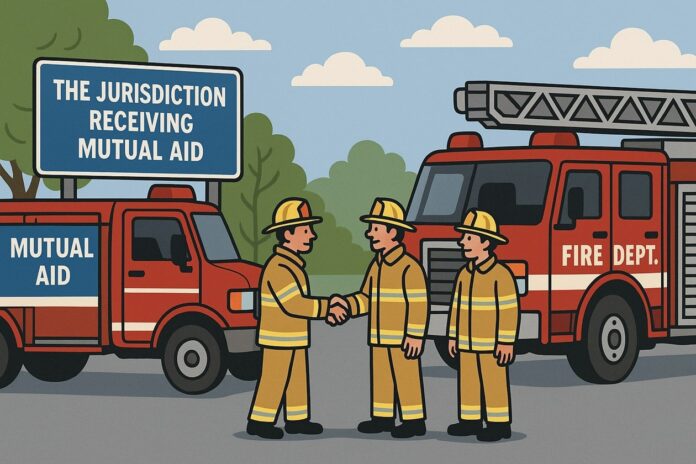The mutual aid agreement acts as an assurance that communities will receive outside aid in times of crisis. They are a significant source of assistance, sending in place resources such as men, materials and special forces. Nevertheless, jurisdictions may reject the assistance, which does not correspond to their particular requirement, and guarantee the productive use of resources and a proper response to the disaster. This is a crucial choice towards smooth disaster handling.
Question: The jurisdiction receiving mutual aid can ____________ resources if they do not meet its needs.
Here are the four options for the question:
- Decline
- Redirect
- Disregard
- Store
Answer: Mutual aid requires that the jurisdiction receiving aid may decline the aid offered to them because it is not what they require.
Explanation
In the case of an emergency, such as a big fire, flood, or any other type of disaster, the local government can call in outside help using mutual aid agreements. Mutual aid is the kind of agreement between two adjacent jurisdictions to help each other in the event of a need. They are important where a local event has overwhelmed the capacity of a jurisdiction, adding forces normally available to that jurisdiction, supplied by surrounding municipalities or even at the state level capacities.
Purpose of Mutual Aid Agreements
The essence of mutual aid focuses on strengthening the capacity of a community to respond to an emergency. This may include the deployment of firefighters, water tankers, medical teams, heavy equipment or other special teams (e.g., urban search and rescue, hazmat). This is normally done by positioning the resources in advance or hastily deploying them to the jurisdiction where the crisis has occurred so as to help contain or eliminate the crisis.
Why a Jurisdiction Can “Decline”
Jurisdiction requests help according to specific needs: the kind of hazard, the extent of the damage, the terrain, accessibility problems, the number of inhabitants involved, and so forth. When external help comes, and it fails to match such needs, it may cause inefficiencies, conflicts over resources, and even safety risks. Thus, the receiving authority may refuse the aid in the case of its irrelevance, insufficiency, or inability to participate in the work linked to this aid.
Why Other Options Don’t Work?
Redirect
Redirecting refers to the transfer of incoming resources. However, in the vast majority of mutual aid systems, each transmission has to be purposeful. Jurisdictional areas are unable to redirect resources, such as personnel or equipment of another agency, with any degree of ease; doing so may violate legal agreements, increase exposure of liability, and incite confusion. When an aid offer does not suit one aspect of the operation, it is better just to refuse.
Disregard
Then, disregarding (i.e. not listening to help at all) is unprofessional and inefficient. Mutual aid is based on free communication, review and administration. Although resources may not be productive at the current moment, no one is allowed to disregard them silently; everybody has to either reject them or respond to them formally.
Store
It may sound logical to save those aids to use in the future, but storing in emergencies is not feasible. Teams and equipment are usually planned and underspecified; they cannot be stored, disturb planning, maintenance and serviceability. What is more is that disasters require prompt solutions, not saving up resources to be used tomorrow.
FAQs
Q1: Is the jurisdiction entitled to request through mutual aid?
Well–reimbursement clauses may be contained in a mutual aid agreement. Depending on the terms of agreement, the requesting jurisdiction may recover costs by use of outside resources.
Q2: Who mobilises incoming mutual aid teams?
Incoming resources are all coordinated under an incident commander or the unified command with the requesting jurisdiction which ensures that there have been guidelines, create roles, and coordinate the operations effectively.
Q3: What in case several jurisdictions refuse to grant?
With the decline of all offers, the jurisdiction remains operational with local assets. It also makes an increase in the request, and this is usually done by different systems, local to state or state to federal mutual aid systems.






